Does Google Pay Per Click Work?
If you’ve ever wondered, “Does Google Pay Per Click work?” you’re in the right place! In this article, we’ll dive into the world of online advertising and explore the effectiveness of Google’s Pay Per Click (PPC) advertising platform. So, buckle up and let’s embark on a journey of discovery together!
Picture this: you’re a business owner looking to boost your online visibility and attract more customers. Google PPC might just be your silver bullet! It’s a powerful advertising tool that allows businesses to bid on keywords and display their ads at the top of search engine results pages. But does it actually work? Well, my friend, that’s what we’re here to find out.
Throughout this article, we’ll explore the ins and outs of Google PPC, examining its advantages, potential pitfalls, and real-world success stories. So, whether you’re a curious entrepreneur or simply want to expand your knowledge, prepare to unlock the secrets of Google Pay Per Click and discover if it’s the right advertising strategy for you. Let’s get started!
Curious about the effectiveness of Google Pay Per Click? Let me break it down for you. Google Pay Per Click works by displaying your ads on relevant search results pages and websites, and you only pay when someone clicks on your ad. It’s a targeted, cost-effective way to reach potential customers. Many businesses have seen success and increased conversions with Google Pay Per Click. Give it a try and see the results for yourself!
Does Google Pay Per Click Work?
Google Pay Per Click (PPC) advertising is a popular form of online advertising that allows advertisers to display their ads on relevant search engine results pages. But does it really work? In this article, we will delve into the world of Google PPC advertising, exploring its benefits, challenges, and tips for success. Whether you’re a business owner considering PPC as part of your marketing strategy or simply curious about how it works, this article will provide you with valuable insights.
Understanding Google Pay Per Click Advertising
Google PPC advertising operates on a pay-per-click model, meaning advertisers only pay when their ad is clicked by a user. Ads are displayed on Google’s search engine results pages (SERPs) based on their relevance to the user’s search query. The ads are placed at the top or bottom of the SERPs, typically marked as “sponsored” or “ad.” As an advertiser, you choose the keywords for which you want your ads to appear and bid on them, determining how much you’re willing to pay for each click.
One key advantage of Google PPC advertising is the ability to target specific audiences with precision. With an array of targeting options, including location, device, and demographics, advertisers can tailor their ads to reach their desired audience. This level of customization enables businesses to maximize their advertising budget by reaching the most relevant users who are more likely to convert into customers.
However, it’s essential to recognize that Google PPC advertising is not a silver bullet solution. It requires careful planning, monitoring, and optimization to achieve the desired results. Let’s explore the benefits and challenges of Google PPC advertising in more detail.
The Benefits of Google Pay Per Click Advertising
1. Increased Visibility: Google PPC advertising allows you to gain prime visibility on the search engine results pages, putting your business in front of potential customers at the exact moment they’re searching for products or services similar to yours.
2. Precise Targeting: With Google’s sophisticated targeting options, you can reach specific audiences based on their location, demographics, interests, and more. This precision targeting helps ensure that your ads are being shown to the right people.
3. Cost Control: Google PPC advertising offers full control over your budget. You can set a maximum daily spend and adjust your bids to manage costs effectively. This flexibility allows small businesses to compete with larger competitors without breaking the bank.
4. Measurable Results: Unlike traditional advertising methods, Google PPC advertising provides detailed data and insights into your ad’s performance. You can track impressions, clicks, conversions, and more, allowing you to gauge the success of your campaigns and make data-driven decisions.
5. Quick Results: With Google PPC advertising, you can see immediate results. Unlike other forms of advertising that may take time to generate leads or sales, PPC ads start driving traffic to your website as soon as your campaign is live.
The Challenges of Google Pay Per Click Advertising
1. Costly Clicks: Depending on your industry and the competitiveness of keywords, the cost per click (CPC) can be quite high. This means you need to carefully manage your budget and optimize your campaigns to ensure a positive return on investment.
2. Fierce Competition: Google PPC advertising is a highly competitive space. You’ll be bidding against other advertisers targeting the same keywords, which can drive up costs and make it harder to achieve top ad placements.
3. Constant Monitoring and Optimization: To achieve success with Google PPC advertising, ongoing monitoring and optimization are crucial. You need to analyze data, adjust your bids, test different ad copies, and refine your targeting to stay ahead of the competition and maximize your results.
Tips for Success in Google Pay Per Click Advertising
1. Extensive Keyword Research: Conduct thorough keyword research to identify relevant keywords with high search volumes and moderate competition. This will help you create targeted campaigns and improve your ad’s visibility.
2. Compelling Ad Copies: Craft compelling ad copies that highlight the unique selling points of your products or services. Use engaging language, include relevant keywords, and ensure your ads are tailored to attract your target audience.
3. Landing Page Optimization: Create optimized landing pages that align with your ad messaging and provide clear call-to-action. A well-designed and user-friendly landing page can significantly improve your conversion rates and overall campaign success.
4. Continuous Monitoring and Optimization: Regularly monitor your campaigns, analyze performance data, and make adjustments to improve your campaigns’ effectiveness. Test different ad variations, adjust your bids, and refine your targeting to achieve optimal results.
5. Conversion Tracking: Implement conversion tracking to measure the effectiveness of your campaigns. By tracking conversions, you can identify which keywords, ads, or landing pages are generating the most conversions, allowing you to optimize and allocate your budget effectively.
6. Stay Informed and Adapt: The world of PPC advertising is constantly evolving. Stay updated on industry trends, new features, and best practices. Adapt your strategies as needed to stay competitive and maximize your ROI.
Maximizing the Success of Your Google PPC Campaigns
Now that we’ve explored the ins and outs of Google PPC advertising, it’s time to delve deeper into strategies and techniques to maximize the effectiveness and success of your campaigns. Below are three key areas to focus on when optimizing your Google PPC campaigns.
Keyword Research: The Foundation of Your Campaign
Keyword research is the foundation of a successful Google PPC campaign. By identifying the right keywords, you can ensure that your ads are shown to the most relevant audience, increasing the chances of clicks and conversions. Here are some tips to consider:
1. Use a Keyword Research Tool:
Utilize keyword research tools like Google Keyword Planner, SEMrush, or Ahrefs to find relevant keywords with high search volumes and moderate competition. These tools provide insights into search volumes, keyword variations, and competition metrics, helping you make informed keyword choices.
2. Consider Long-Tail Keywords:
Long-tail keywords are more specific and have lower search volumes, but they often have higher conversion rates. Targeting long-tail keywords can attract more qualified leads and increase the effectiveness of your campaigns.
3. Analyze Competitor Keywords:
Research your competitors’ keywords to gain insights into their strategies and identify any gaps or opportunities you can leverage. This competitive analysis can help you refine your keyword choices and gain a competitive edge.
Compelling Ad Copies: Captivating Your Audience
Once you have your keywords ready, it’s time to create compelling ad copies that grab the attention of your audience. Well-crafted ad copies can significantly impact your click-through rates and conversions. Here’s how to create captivating ad copies:
1. Highlight Unique Selling Points:
Showcase the unique selling points of your products or services in your ad copies. Clearly communicate what sets you apart from competitors and why users should choose your business.
2. Use Persuasive Language:
Choose persuasive language that evokes emotion and encourages users to take action. Use strong verbs, compelling adjectives, and clear calls-to-action to drive engagement.
3. Test Multiple Ad Variations:
Don’t settle for a single ad copy. Create multiple variations and test them against each other. Pay attention to differentiating elements like headlines, descriptions, and call-to-action phrases to identify which perform best. Continuous testing and optimization can help improve your click-through rates and conversion rates.
Landing Page Optimization: Improving Conversion Rates
Driving users to your website is only half the battle. Once they click on your ad, you want to ensure they have a positive experience and are compelled to take action. Landing page optimization plays a critical role in improving conversion rates. Consider the following factors:
1. Consistency with Ad Messaging:
Ensure that your landing page aligns with the messaging and offers mentioned in your ad. Consistency builds trust and reduces bounce rates.
2. Clear Call-to-Action:
Create a clear and compelling call-to-action (CTA) that communicates the desired action you want users to take. Make it prominent and easily visible on your landing page.
3. Mobile-Friendly Design:
Given the significant percentage of users accessing the web on mobile devices, it’s essential to optimize your landing page for mobile. Make sure it loads quickly, is easy to navigate, and displays properly across various devices and screen sizes.
By focusing on keyword research, compelling ad copies, and landing page optimization, you can significantly enhance the performance and success of your Google PPC campaigns. Remember, continuous monitoring, testing, and optimization are key to staying competitive in the ever-evolving world of PPC advertising.
Common Mistakes to Avoid in Google Pay Per Click Advertising
Google Pay Per Click (PPC) advertising can be a powerful tool to reach your target audience and drive conversions. However, it’s essential to avoid common mistakes that can hinder the success of your PPC campaigns. In this section, we’ll highlight some of the most common mistakes and provide tips on how to avoid them.
1. Neglecting Negative Keywords:
Negative keywords are the keywords for which you don’t want your ads to appear. Failing to identify and add negative keywords to your campaigns can result in irrelevant clicks and wasted ad spend. Regularly analyze your search terms report and add any irrelevant or low-converting keywords as negatives to refine your targeting.
2. Bidding on Broad Match Keywords Only:
Broad match keywords can generate a large number of impressions, but they may not always be the most relevant or cost-effective option. Consider utilizing modified broad match, phrase match, or exact match keywords to refine your targeting and increase the relevance of your ads.
3. Poor Ad Group Structure:
A well-structured ad group is essential for effective PPC campaigns. Avoid grouping unrelated keywords together in the same ad group. Instead, organize your ad groups based on themes or product categories to maintain relevancy and improve Quality Scores.
4. Ignoring Ad Extensions:
Ad extensions provide additional information and opportunities for users to engage with your ads. Failure to utilize ad extensions, such as call extensions, sitelink extensions, or location extensions, can limit the visibility and effectiveness of your ads.
5. Insufficient Ad Testing:
Testing different ad variations is crucial for improving ad performance. Avoid the mistake of not testing and optimizing your ads regularly. Test different headlines, descriptions, and calls-to-action to identify the best-performing ad variations and continually refine your campaigns.
6. Neglecting Landing Page Optimization:
Your landing page plays a significant role in converting clicks into leads or sales. Neglecting landing page optimization can result in high bounce rates and low conversion rates. Ensure your landing page is relevant, user-friendly, and optimized for conversions.
7. Failing to Track Conversions:
Tracking conversions is essential for measuring the success of your PPC campaigns. Without conversion tracking, you won’t be able to accurately assess your return on investment or identify which keywords, ads, or landing pages are driving the most conversions. Implement conversion tracking to make data-driven decisions and maximize your campaign effectiveness.
8. Not Utilizing Audience Targeting:
Google provides various audience targeting options that allow you to reach specific groups of users. Failing to utilize audience targeting can limit the reach and relevance of your ads. Consider using remarketing, in-market audiences, or similar audiences to target users who have shown interest in your products or services.
9. Setting It and Forgetting It:
A common mistake is to set up your PPC campaigns and then forget about them. PPC advertising requires constant monitoring, optimization, and adjustment. Regularly review your campaign performance, analyze data, and make necessary changes to improve your campaigns’ effectiveness.
10. Ignoring Competitor Analysis:
Keeping an eye on your competitors is important in the world of PPC advertising. Monitor their keywords, ad copies, and strategies to stay competitive and identify areas for improvement. Analyzing your competitors can provide insights and inspirations for optimizing your campaigns.
Maximizing Your PPC Budget: Tips for Cost Efficiency
Achieving success with Google PPC advertising doesn’t always mean spending more money. With strategic planning and cost-saving tactics, you can maximize the efficiency of your PPC budget while driving meaningful results. In this section, we’ll explore some tips to make the most of your PPC budget:
1. Set a Realistic Budget:
Before launching your PPC campaigns, determine a realistic and manageable budget. Consider your business’s financial capabilities, the competitiveness of your industry, and the goals you want to achieve. Setting a budget that aligns with these factors will help you avoid overspending and ensure a positive return on investment.
2. Focus on High-ROI Keywords:
Identify high-ROI (return on investment) keywords by analyzing their search volume, competition level, and conversion rates. By focusing on keywords that have proven to deliver results, you can prioritize your budget allocation and increase the likelihood of conversions.
3. Utilize Location Targeting:
If your products or services target a specific geographic area, consider utilizing location targeting. By narrowing your audience to only those in relevant locations, you can eliminate wasted spend on users outside your target market.
4. Schedule Ads Strategically:
Review your campaign data to identify peak hours or days when your ads are most likely to convert. By scheduling your ads strategically, you can ensure your budget is focused on times when your target audience is most active and engaged.
5. Implement Ad Scheduling:
Ad scheduling allows you to specify the days and times your ads are eligible to appear. Adjust your ad schedule to align with your audience’s behavior and peak conversion times.
6. Use Ad Extensions:
Ad extensions can enhance the visibility and performance of your ads without incurring additional costs. Utilize extensions such as call extensions, site link extensions, or structured snippet extensions to provide more information and engage users further.
7. Optimize Landing Pages:
A well-optimized landing page can significantly impact your conversion rates. Ensure your landing pages are user-friendly, relevant, and aligned with your ad messaging. A seamless transition from ad to landing page increases the likelihood of conversions, maximizing the efficiency of your budget.
8. Implement Conversion Tracking:
By implementing conversion tracking, you can gain valuable insights into which keywords, ads, and campaigns are driving the most conversions. Use this data to optimize your budget allocation and focus on the most effective strategies.
Conclusion
Google Pay Per Click advertising can be an incredibly effective way to reach your target audience, increase brand visibility, and drive conversions. However, it requires careful planning, continuous optimization, and a strategic approach. By understanding the benefits, challenges, and best practices of Google PPC advertising, you can maximize the effectiveness of your campaigns and achieve measurable results. Remember to conduct thorough keyword research, create compelling ad copies, optimize your landing pages, and monitor your campaigns’ performance regularly. With diligence, creativity, and a focus on cost efficiency, your Google PPC campaigns can deliver positive outcomes for your business.
“Does Google Pay Per Click Work?” – Key Takeaways
- Google Pay Per Click (PPC) can be an effective advertising strategy for businesses.
- PPC allows businesses to target specific keywords and display their ads to potential customers.
- PPC can drive immediate traffic to a website and generate leads or sales.
- However, success with PPC requires careful keyword selection, ad optimization, and budget management.
- Regular monitoring and tweaking of PPC campaigns are necessary to maximize results.
Frequently Asked Questions
Are you curious about how Google’s Pay Per Click (PPC) advertising works? We’ve got you covered! Check out these commonly asked questions to learn more.
1. How does Google’s Pay Per Click advertising work?
Google’s Pay Per Click advertising, also known as Google Ads or Google AdWords, is a digital advertising platform where businesses bid on specific keywords to display their ads at the top of Google search results. When a user searches for a keyword that matches an advertiser’s bid, the ad appears in a prominent position, and the advertiser pays a fee only if the ad is clicked on.
This advertising model leverages an auction system where advertisers compete for ad placement. Several factors determine the winning bid, including the quality of the ad, the relevance and quality of the landing page, and the bid amount. Overall, Google’s PPC advertising provides businesses with a targeted way to reach potential customers and drive traffic to their websites.
2. What are the benefits of using Google’s Pay Per Click advertising?
One of the main benefits of using Google’s Pay Per Click advertising is that it allows businesses to appear at the top of Google search results, even above organic rankings. This increased visibility can lead to more clicks, website visits, and potential sales. Additionally, PPC ads offer precise targeting options, allowing businesses to reach specific demographics, locations, or interests.
Furthermore, Google’s Pay Per Click advertising provides valuable data and insights into ad performance, including impressions, clicks, and conversions. This data allows businesses to refine their targeting, optimize their ads, and improve overall ROI. With flexible budget options, businesses can set a maximum spend, ensuring they have control over their advertising costs.
3. How can I create an effective Google Pay Per Click campaign?
To create an effective Google Pay Per Click campaign, it’s essential to start with thorough keyword research. Identify the keywords that are relevant to your business and have a high search volume. This will help you reach a larger audience and increase the chances of getting clicks on your ads.
Next, craft compelling ad copy that grabs the attention of your target audience. Highlight your unique selling points and include a clear call to action. Ensure that your landing page is optimized and aligned with the ad’s message to provide a seamless user experience.
Regularly monitor and analyze your campaign’s performance. Make adjustments to your targeting, ad copy, and bidding strategy based on the data and insights you gather. Continuous optimization is key to ensuring your Google Pay Per Click campaign remains effective and delivers the desired results.
4. How much does Google Pay Per Click advertising cost?
The cost of Google’s Pay Per Click advertising varies depending on several factors, including the competitiveness of the keywords you’re targeting and the quality and relevance of your ad and landing page. Advertisers bid on keywords and set a maximum budget, so you have control over your spending.
Google Ads operates on a pay-per-click model, meaning you only pay when someone clicks on your ad. The cost per click (CPC) can range from a few cents to several dollars, depending on the industry and keyword competition. It’s important to regularly monitor and optimize your campaign to ensure you’re getting the most out of your advertising budget.
5. Can Google Pay Per Click advertising help increase my website’s traffic and sales?
Absolutely! One of the primary goals of Google’s Pay Per Click advertising is to drive targeted traffic to your website and increase potential sales. By appearing at the top of search results and targeting relevant keywords, you can attract users who are actively searching for products or services like yours.
However, driving traffic to your website is just the first step. To increase sales, it’s essential to have an optimized website with clear calls to action, compelling product descriptions, and an easy-to-navigate checkout process. By combining effective PPC advertising with a strong website, you can maximize your chances of converting website visitors into paying customers.
Pay-Per-Click-Advertising Explained For Beginners
Summary
So, does Google Pay Per Click (PPC) work? Well, it depends on a few factors. First, if you have a well-designed and relevant ad, it can definitely attract clicks. Second, the keywords you choose and the bidding strategy you implement play a crucial role. Lastly, monitoring and optimizing your campaign is essential to ensure success. Ultimately, Google PPC can be effective if you put in the effort to make it work for your business.
However, it’s important to understand that PPC ads are not a magic solution. They require careful planning, monitoring, and adjusting to achieve the desired results. It’s essential to set clear goals and measure your success against them. With the right approach, Google PPC can be an effective tool to drive traffic and generate leads or sales for your business.

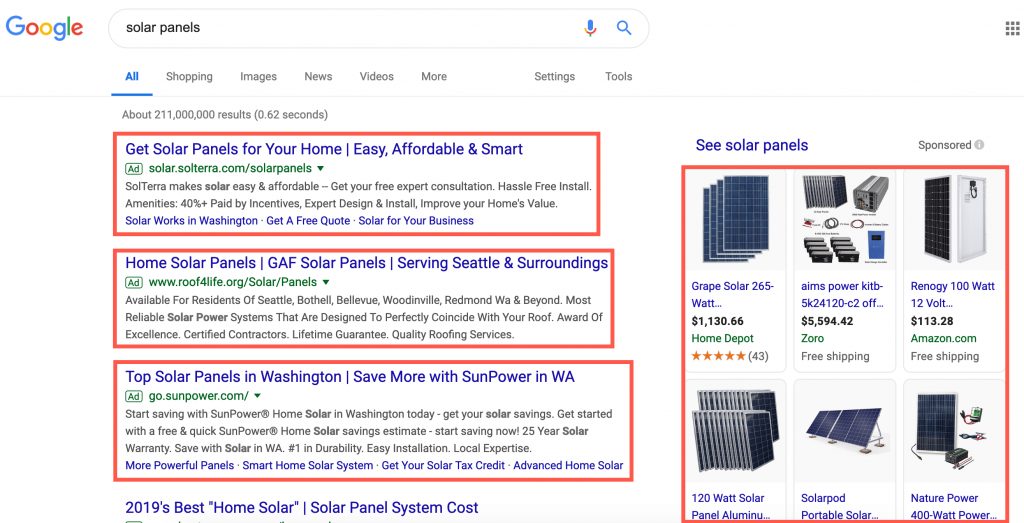
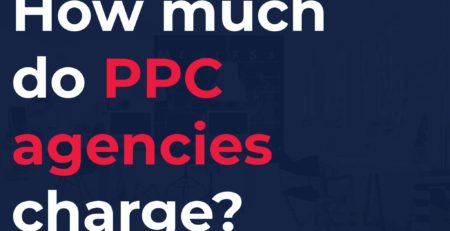
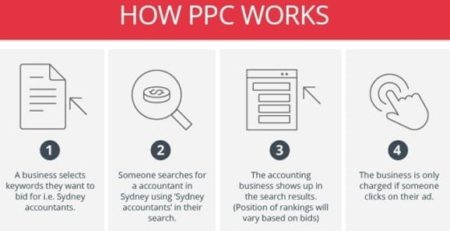
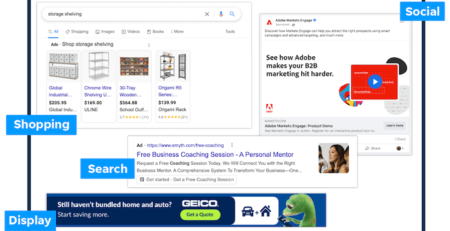
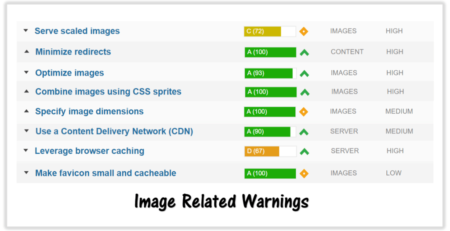

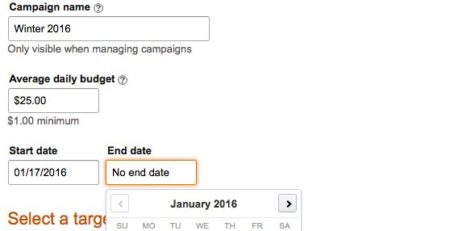
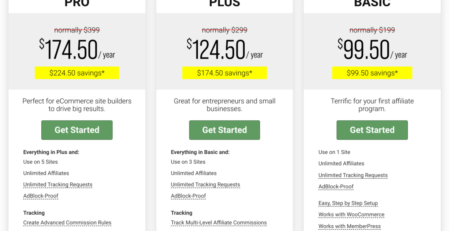
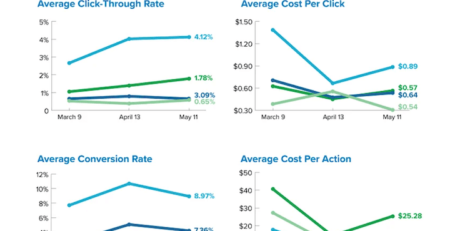
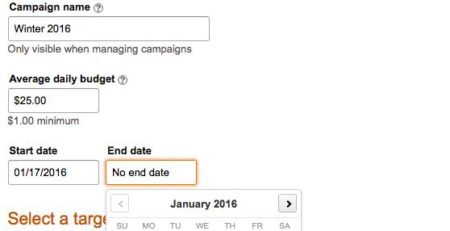
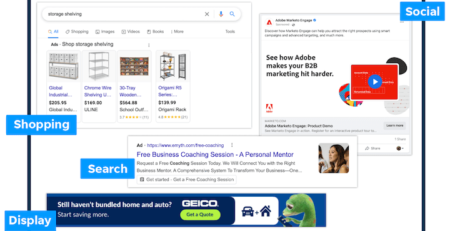
Leave a Reply